Easy Peel Hard Boiled Eggs
Skip the aggravation next time you try to peel a hard boiled egg. This technique will produce easy peel hard boiled eggs every time.
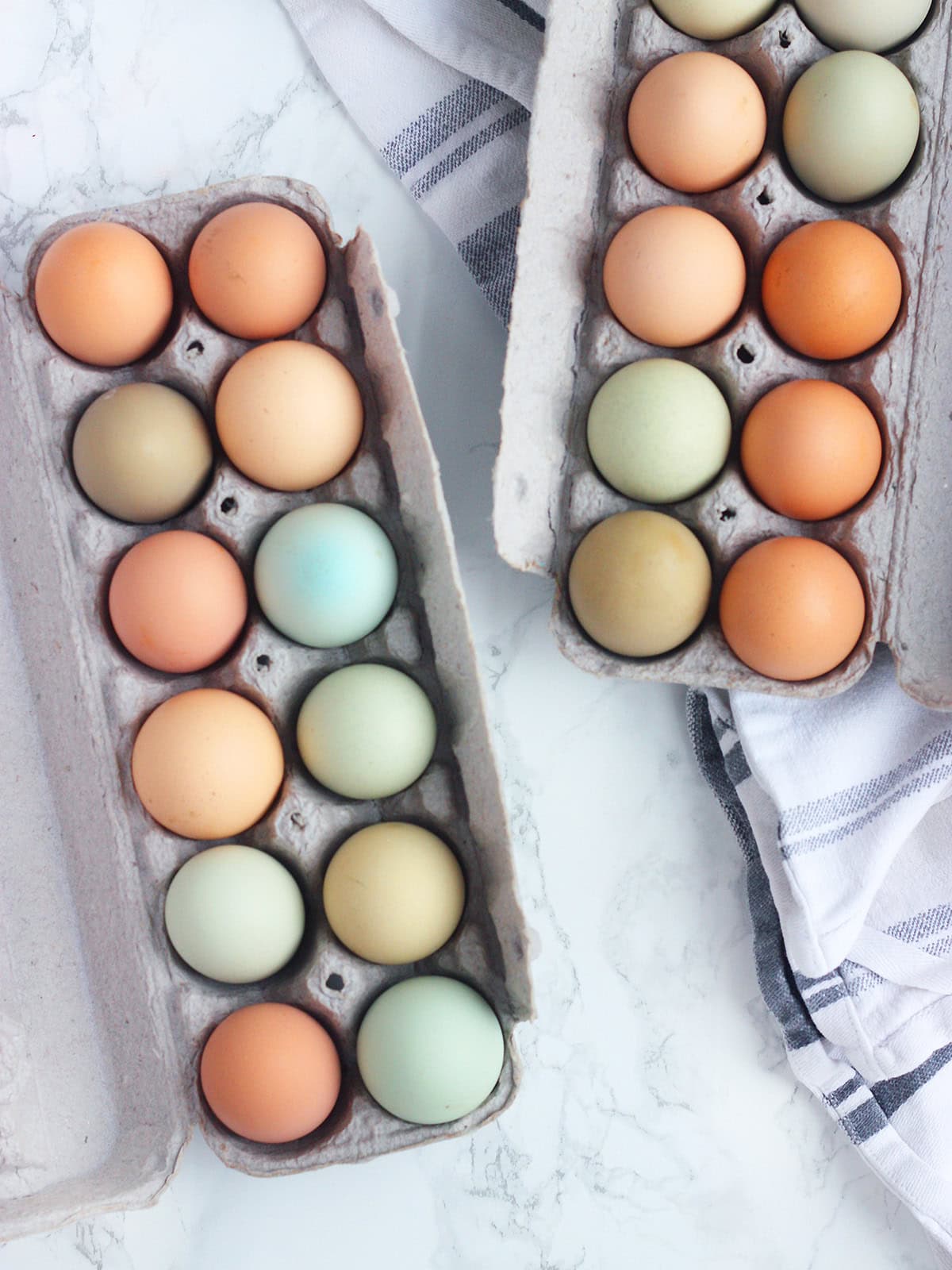
In my family, someone is always expected to bring deviled eggs to a family gathering. Serving a large meal without them is like Thanksgiving without the turkey. It’s just not done.
Over the years, I have made my fair share of deviled eggs for a crowd. The most aggravating part of the whole process is peeling ALL. THOSE. DERN. EGGS! I hate standing over the kitchen sink peeling a stubborn egg that just won’t turn loose of its shell.
After one particularly vexing Easter where I spent more time than I should have peeling egg after egg only to end up with egg whites that were pitted and pocked from tough shells, I decided to research my own fool proof method for cooking easy peel eggs every single time.
Is it better to use fresh eggs or older eggs for hard boiled eggs?
Fresh eggs are harder to peel. And by fresh, I mean farm-fresh eggs … as in you went out to the coop and harvested them that morning. If that’s the case, it’s better to let the eggs sit a week or two before boiling. However, if you’re using eggs you purchased from the grocery store, it doesn’t matter. Believe it or not, supermarket eggs could be as old as two months by the time you purchase them. That’s because by law in the U.S., farmers have up to 30 days to package eggs after they are laid. The eggs can then be sold for up to 30 days after being placed in a carton.
Cold start or hot start?
For easy-peel eggs, it’s better to lower cold eggs into boiling hot water rather than placing the eggs in cold water and allowing the eggs to come to temp gradually with the water. The sudden heat helps separate the egg white from the shell membrane. It also produces more consistent results and there is less risk of overcooking.
Ingredients and tools you will need
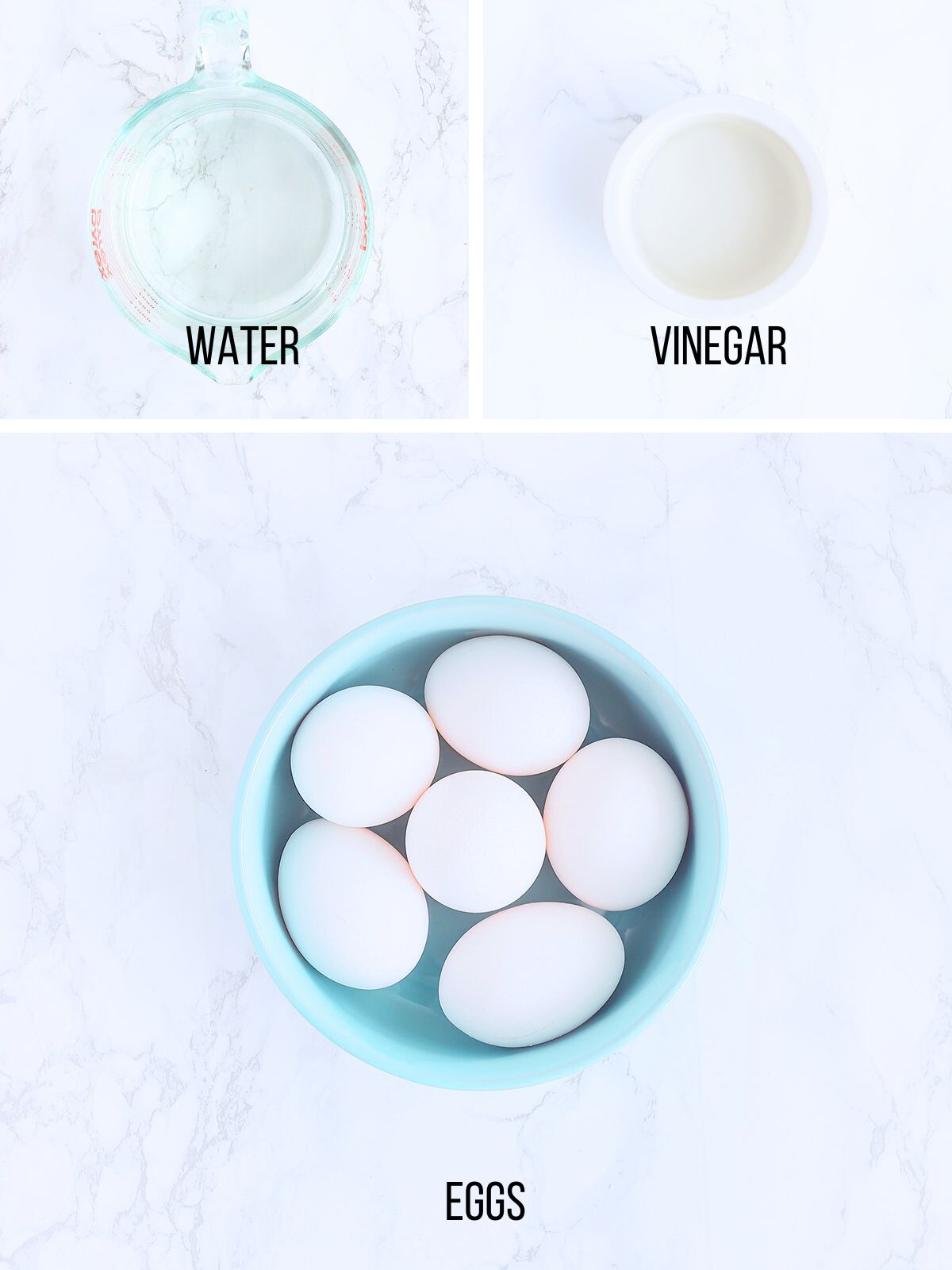
- 6 large eggs, uncooked
- ¼ cup white vinegar – the acetic acid in vinegar dissolves some of the calcium carbonate in the egg shell, making it easier to remove. It also thickens the egg white, which will prevent it from oozing through the shell if there is a crack. Don’t worry, it won’t affect the flavor of the eggs.
- Seven-inch saucepan – you want to allow enough room for the eggs to boil in a single layer.
- Water – Add enough water to cover the eggs by one inch.
- Egg piercer, optional – you can boil eggs without one of these, but I find it really helps to prevent the shells from cracking. The tiny hole allows the air pocket inside to escape as it heats up, preventing the egg shell from cracking under the pressure. It also eliminates the flat dent that can form on the end of the egg once it’s cooked.
- Ice water – The eggs will continue to cook from the residual heat after being removed from boiling water. An ice bath quickly halts the cooking process, preventing overcooked egg yolks. It also causes the egg white to contract and pull away from the shell membrane, making peeling much easier.
How to prepare easy peel hard boiled eggs
- Fill the pot of water with enough cool water to cover the eggs by one inch.
- Add the vinegar. Bring the water to a full rolling boil over high heat.
- While the water comes to a boil, gently pierce a small hole in the fat end of the egg with the egg piercer.
- Once the water comes to a boil, gently lower each egg using a slotted spoon into the boiling water.
- Reduce the heat to medium. Cook the eggs according to the cook time below.
- Remove the saucepan from the heat. Immediately plunge the eggs into a large bowl of ice water. Let them sit in the water for 15 minutes.
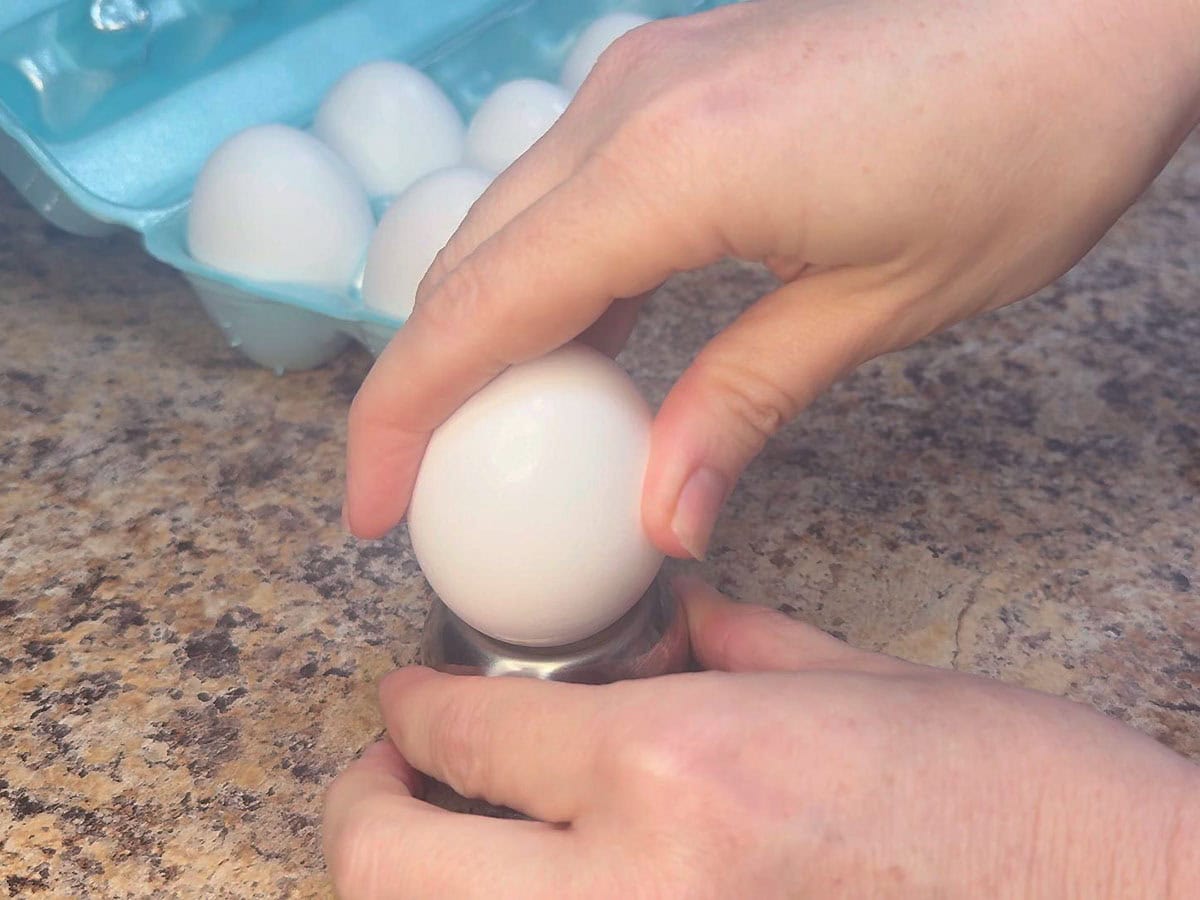
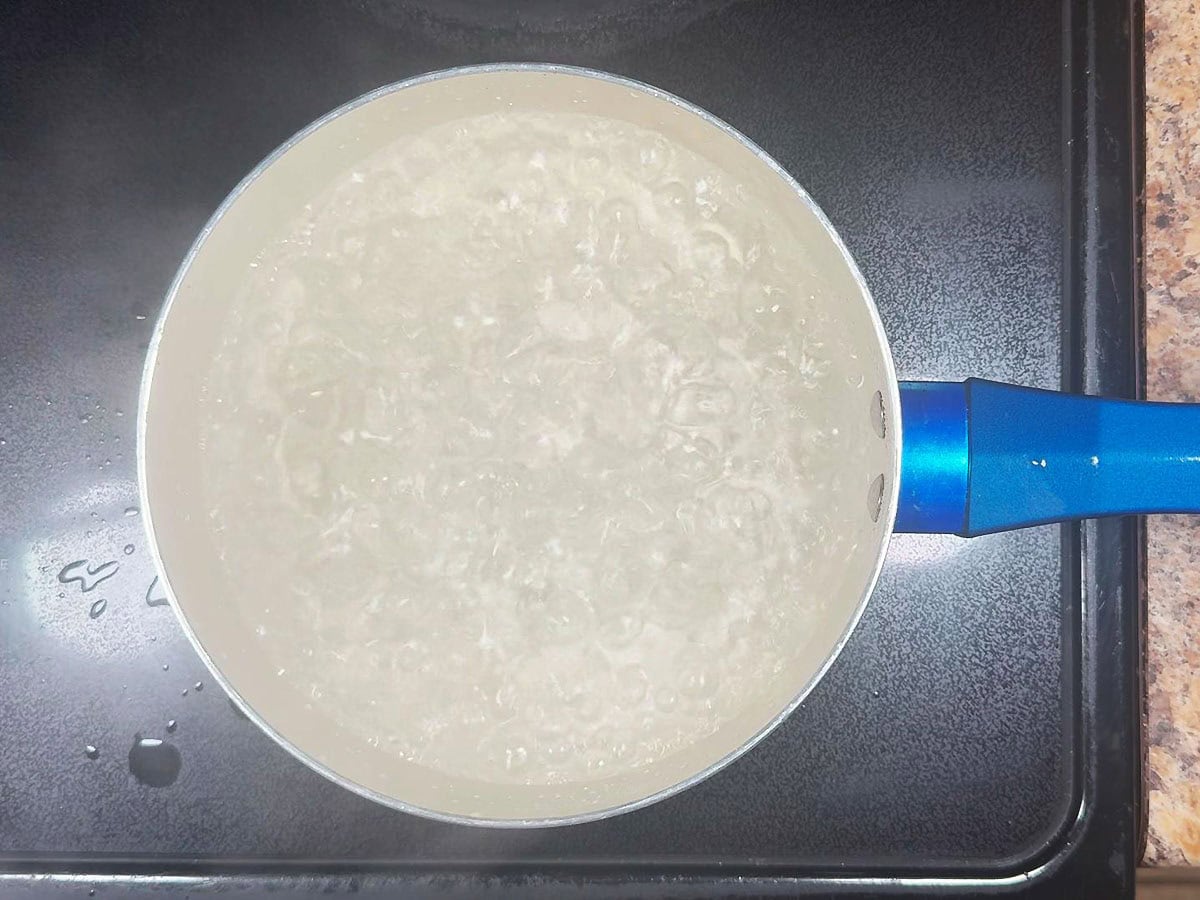
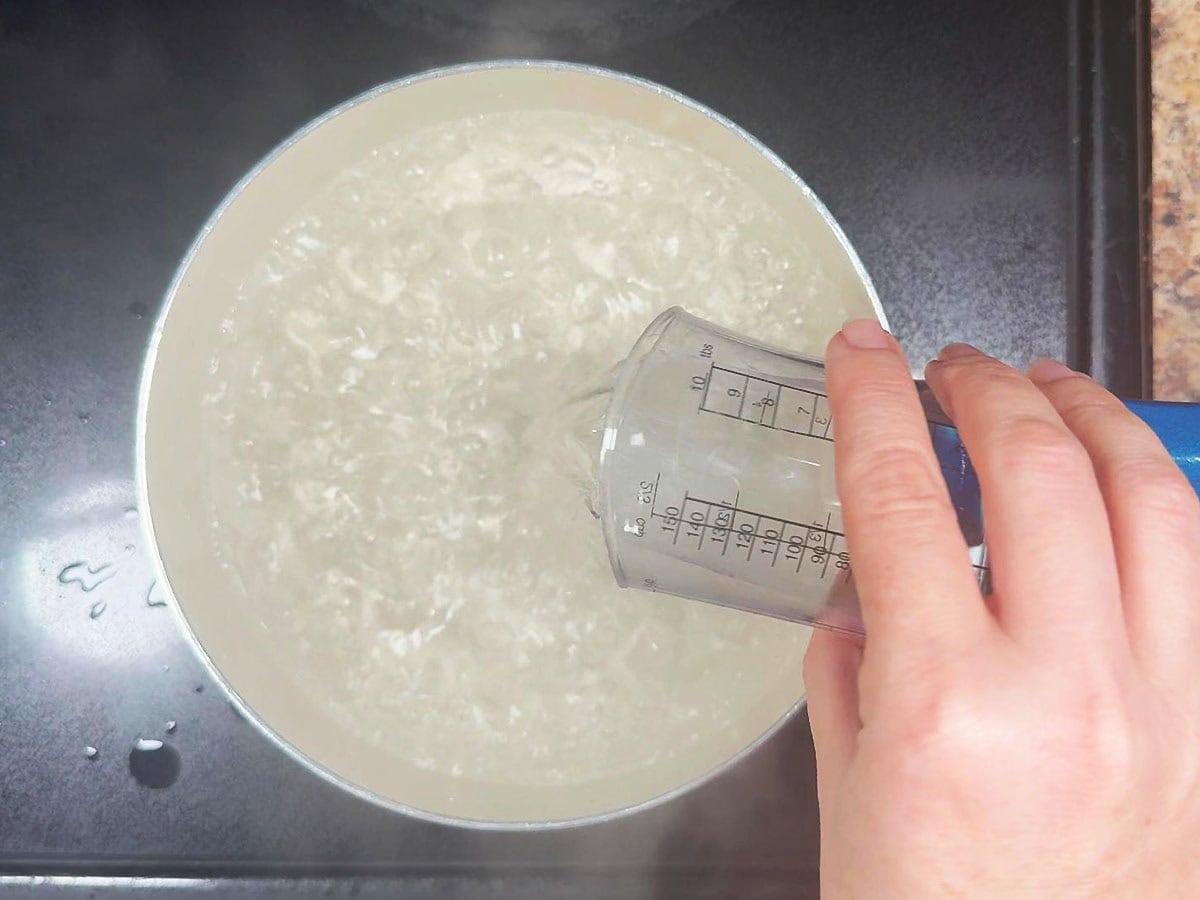
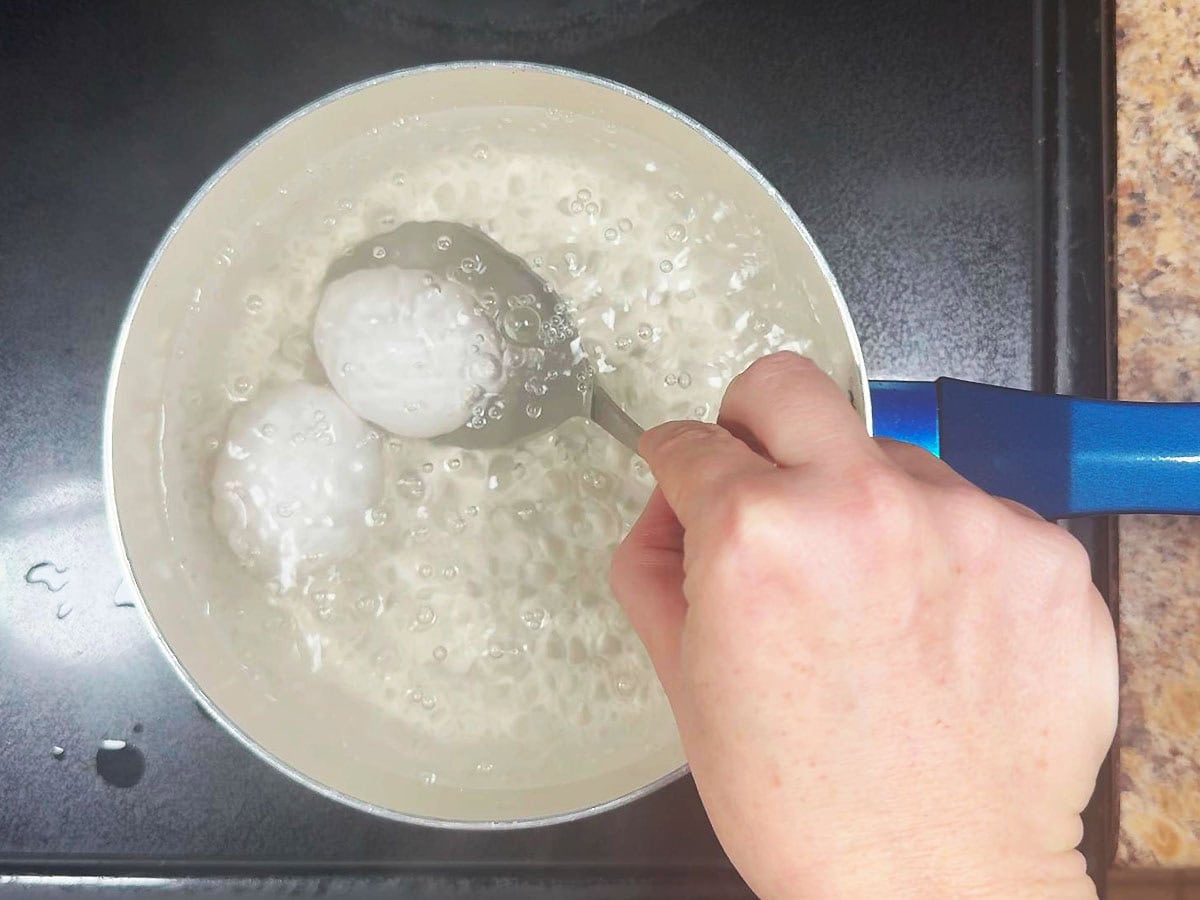
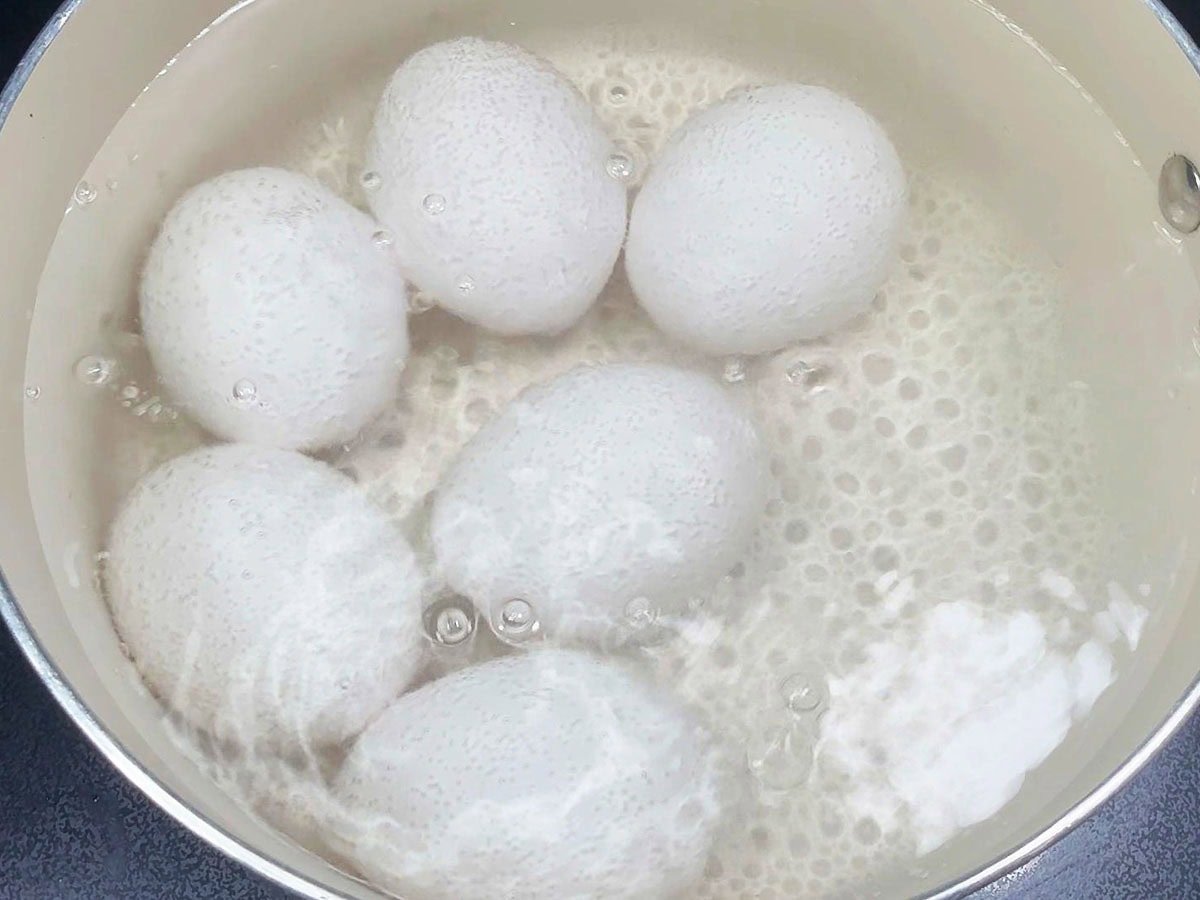
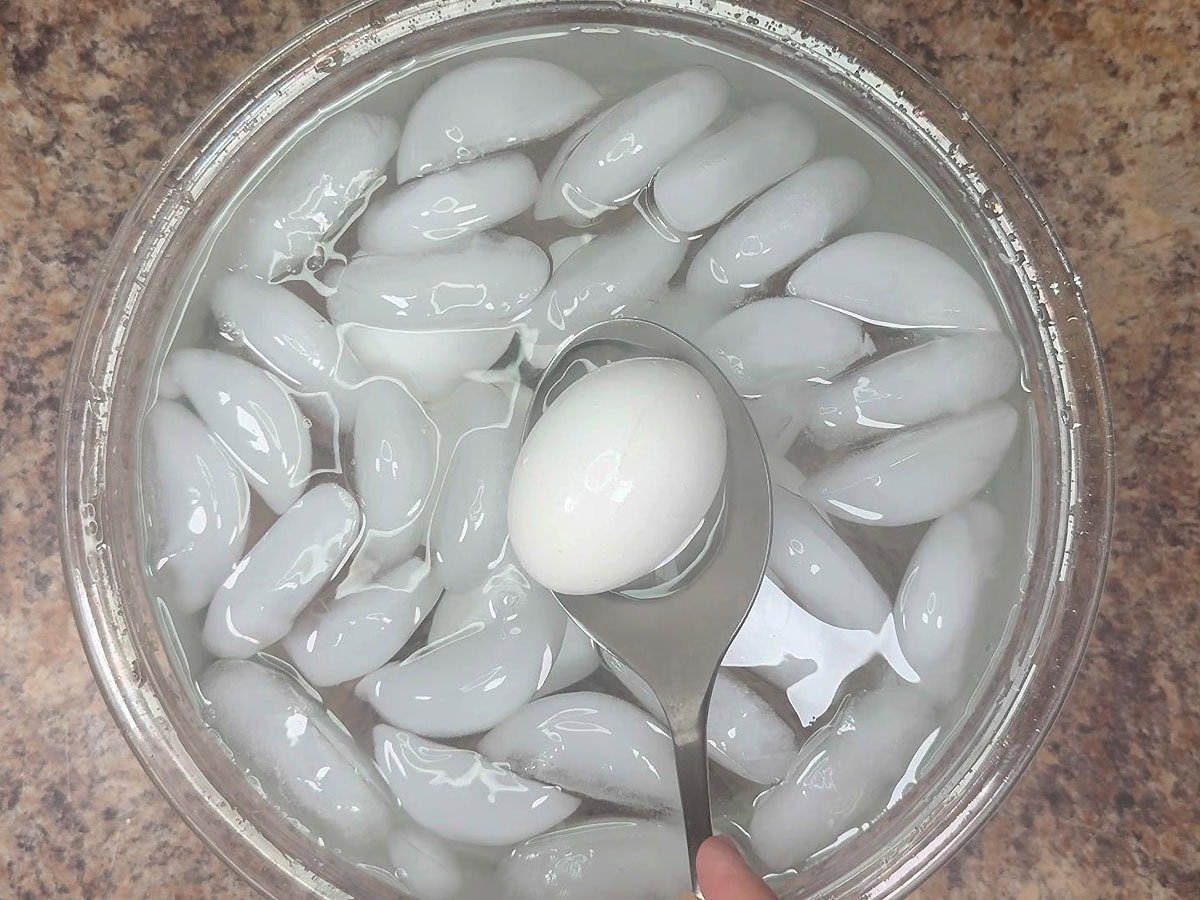
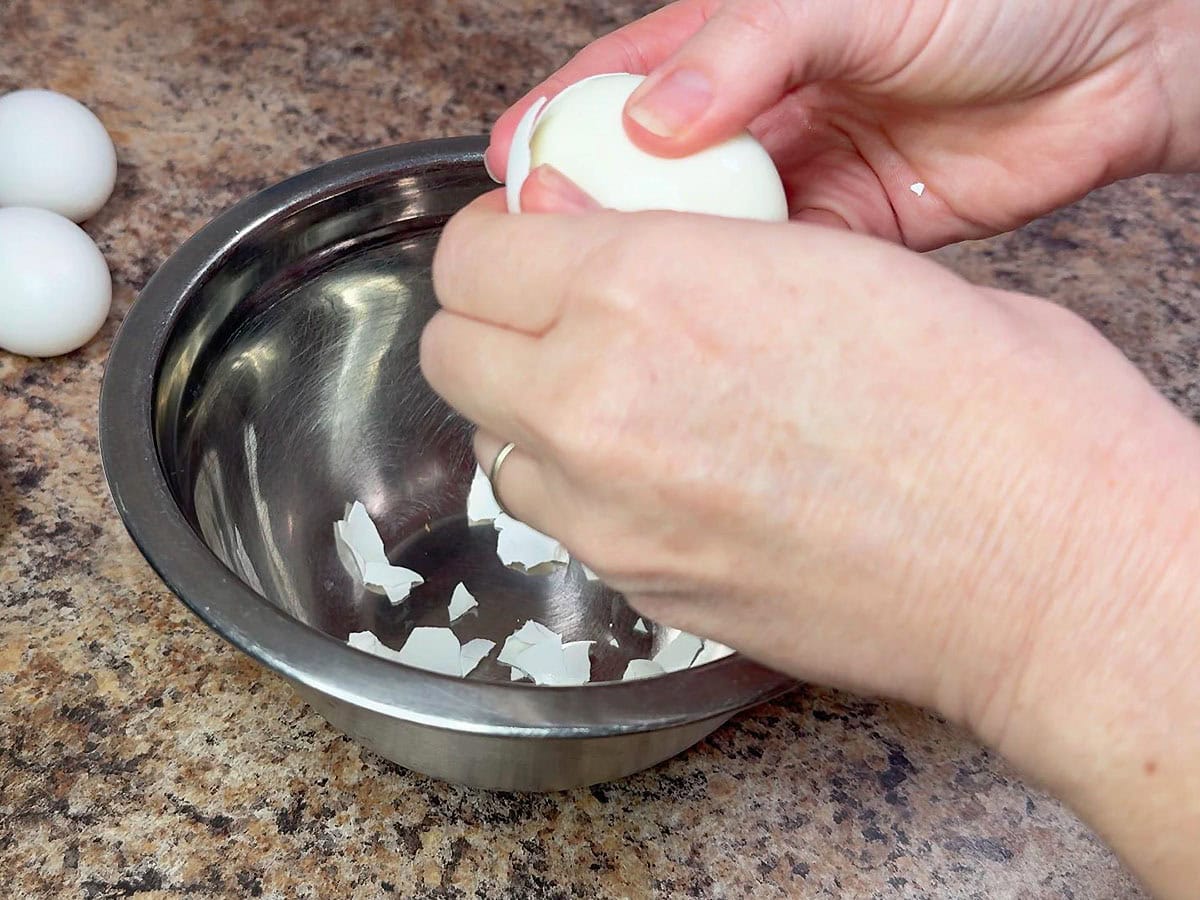
Egg cooking times
- Soft-boiled eggs (runny yolk): 6 minutes
- Medium-boiled (slightly soft yolk): 7-8 minutes
- Medium-boiled (hard boiled around the edges but still a little soft in the center): 9-10 minutes
- Hard-boiled (lighter colored yolks): 11-13 minutes
- Hard-boiled (fully set yolk): 14-15 minutes
Egg peeling tips
- Boil the eggs 24 hours in advance so they can chill overnight in the fridge. This gives the egg white plenty of time to firm up and it will be less likely to stick to the shell when you try to peel it.
- Gently tap the boiled eggs all over on a hard surface, starting with the fat end first. The more cracks in the shell, the easier it will slip off.
- Peel the eggs under cool running water. The water slips under the membrane and helps to separate both it and the shell from the egg white, making it much easier to peel.
Serving suggestions
Hard boiled eggs aren’t just for breakfast or deviled eggs. You will also love them in Southern Cornbread Dressing with Chicken, Tuna Macaroni Salad, and Southern Potato Salad.
How to store hard boiled eggs
Unpeeled hard boiled eggs will last in the refrigerator for up to one week. Be sure to store them away from any foods that give off a strong odor, as eggshells are porous and can absorb the flavor of items around it. Peeled eggs will also keep for a week in the fridge. It’s a good idea to store them in an airtight container or plastic bag to prevent them from drying out. Hard boiled eggs can not be frozen. The process of freezing and thawing affects the texture and will results in watery, tough eggs.
Frequently asked questions
The green discoloration is a sign that the egg is overcooked. It’s a reaction between the iron in the yolk and the sulfur in the whites. It won’t hurt you to eat it. But you won’t end up with sunny yellow yolks with that velvety smooth texture everyone loves.
You can wait. It won’t affect the peeling. Just be sure to store the eggs in the refrigerator in the mean time to prevent spoilage.
White vinegar has the highest percentage of acetic acid; therefore, it’s most effective in breaking down the egg shell. Apple cider vinegar will work in a pinch. However, if you want pristine, white egg shells, apple cider vinegar will give your shells a small bit of tint.
The flat dent on the end of an egg is caused by a pocket of air inside the shell. The older the egg, the larger the air pocket. You can prevent this from happening by piercing a tiny hole at the end of the egg and immediately shocking the eggs in an ice water bath after cooking.
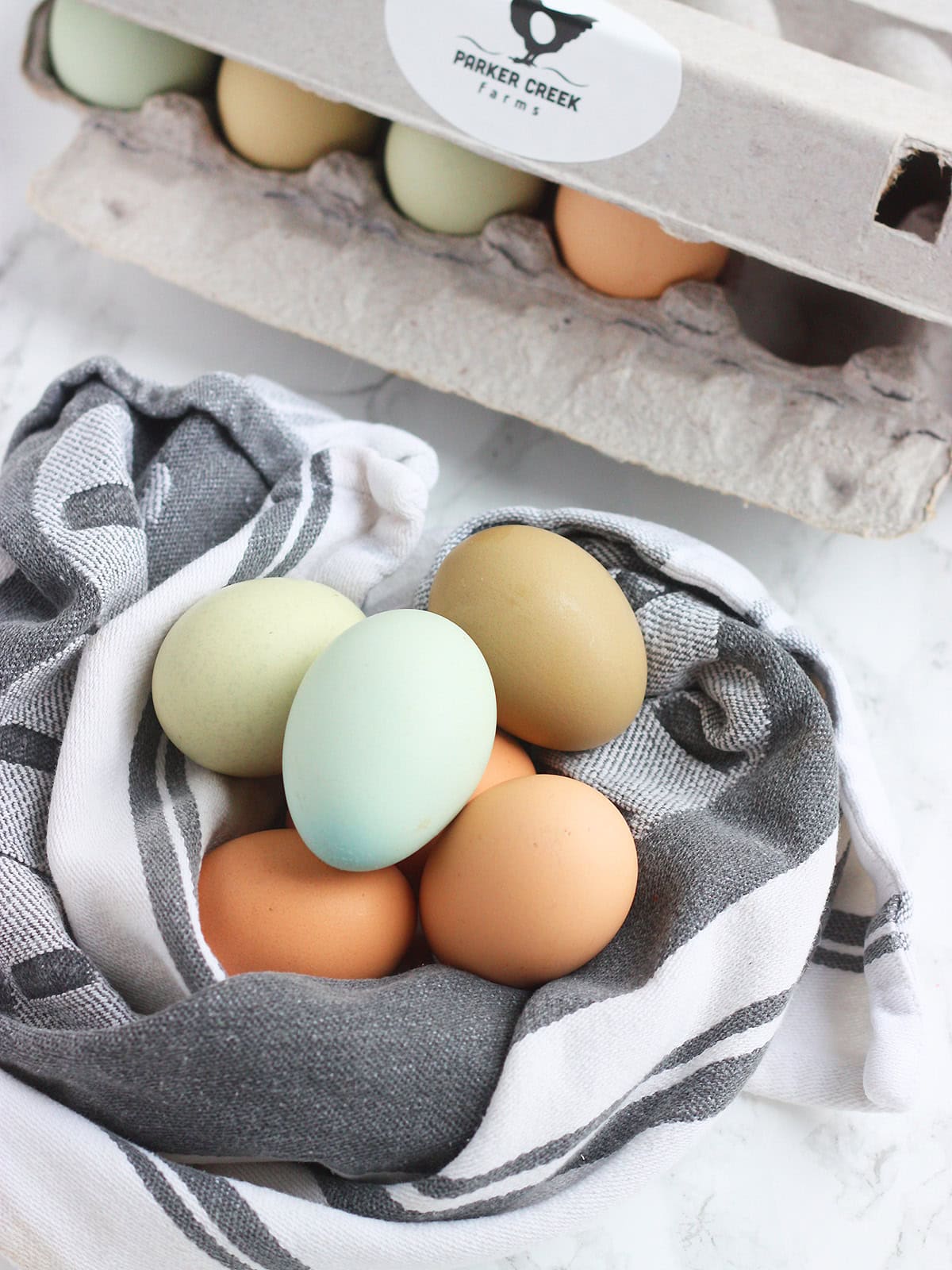

Easy Peel Hard Boiled Eggs
Ingredients
- 6 large eggs
- ¼ cup white vinegar
Instructions
- Fill the pot of water with enough cool water to cover the eggs by one inch.
- Add the vinegar. Bring the water to a full rolling boil over high heat.
- While the water comes to a boil, gently pierce a small hole in the fat end of the egg with the egg piercer.
- Once the water comes to a boil, gently lower each egg using a slotted spoon into the boiling water.
- Reduce the heat to medium. Cook the eggs according to the cook time below.
- Remove the saucepan from the heat. Immediately plunge the eggs into a large bowl of ice water. Let them sit in the water for 15 minutes.
Video
Notes
- Soft-boiled eggs (runny yolk): 6 minutes
- Medium-boiled (slightly soft yolk): 7-8 minutes
- Medium-boiled (hard boiled around the edges but still a little soft in the center): 9-10 minutes
- Hard-boiled (lighter colored yolks): 11-13 minutes
- Hard-boiled (fully set yolk): 14-15 minutes


We love hard boiled eggs! This is the best way I’ve found to get the shells off quickly and easily.